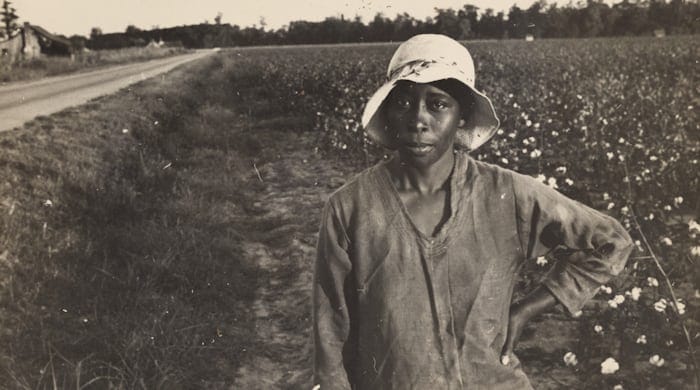Long before the Transatlantic Slave Trade, Africa was notorious for such slavery systems as debt slavery, enslavement of war captives, military slavery, slavery for prostitution and enslavement of criminals.
The transatlantic slave trade marked a new epoch in the 16th century, when Europeans began to exchange humans for cheap labor on their plantations. By trading enslaved people for goods such as alcohol, beads, and clothes, African leaders spurred the practice.
With merchants in London, Bristol and Liverpool, Britain became the foremost slave-trading nation. This was especially lucrative because ships could sail with full holds on every stage of their voyage, making large profits for merchants in London, Bristol, and Liverpool.
Estimates indicate that around 12 million Africans were held captive during the transatlantic slave trade. Between 1640 and 1807, British ships transported about 3.4 million Africans across the Atlantic. By 1808, the British West Africa Squadron was established to suppress illegal slave trading. And between 1820 and 1870, Royal Navy patrols confiscated more than 1500 ships, liberating 150,000 Africans marshaled for slavery in the Americas.
Many people believed that the only way to eradicate slavery was to promote “legitimate” trade and European forms of religion and government in Africa. This paved the way for colonial rule in the 19th century.
Slavery implies bondage, restricting the freedom of a human and making them live beneath a person or a group of people who pose as superior beings to them. While history records many stories of such, along with different perspectives, it is important that the world does not have such a structure. Instead, it should have clearly spelled out laws that address the human rights accrued to every citizen of a nation.
In commemoration of the memory of the victims of the slave trade, the UN General Assembly, in its resolution 62/122 of December 17, 2007, declared March 25 as the International Day of Remembrance of the Victims of Slavery and the Transatlantic Slave Trade, to be observed annually.
The resolution also called for the establishment of an outreach program to mobilize educational institutions, civil society, and other organizations to inculcate in future generations the causes, consequences, and lessons of the trade, and to communicate the dangers of racism and prejudice.
Ever since, every year on March 25, this auspicious day offers the opportunity to honor and remember those who suffered and died at the hands of the brutal slavery system
Its all a thing to remember
Amidst the solemn remembrance of the past, it remains paramount for us to release any lingering bitterness that might ignite hateful discourse, thus veering us away from the intended purpose of this day.
Edward Harlet Carr aptly wrote in his book that History is a relationship between man and his environment, and an unending dialogue between the present and the past. Drawing from this insight, we ought to recognise the inherent value in referencing historical events, regardless of their nature, as we glean lessons from past patterns to forge a path towards a better future devoid of similar mistakes.
Throughout the era of the slave trade, it is estimated that over 3.5 million slaves were forcibly transported from Nigeria to North and South America, as well as the Caribbean colonies. Centuries later, the world now frowns on such a system, allowing generations of descendants of enslaved families to integrate into the countries to which they were once sold. Intermarriages between these descendants are now commonplace, symbolising a fusion of diverse cultures.
Brazil, a nation deeply affected by the slave trade, stands as a vivid example of this amalgamation, with its population comprising various racial backgrounds. According to a 1940 census by the Brazilian Institute of Geography and Statistics (IBGE), the Brazilian population is divided into five racial categories: Branco (white), Pardo (multiracial), Preto (black), Amarelo/Asiático (yellow/Asian), and Indígena (indigenous).
Numerous anecdotes recount similar instances of interracial relationships and marriages between Africans and Europeans. It is intriguing to delve into the study of history, observing how some Africans adopt a Eurocentric perspective while some Europeans embrace an Afrocentric viewpoint.
Although traces of racism persist in various parts of the world, it is undeniable that, compared to the past, societal unity has significantly improved. As essential events are commemorated and acknowledged, individuals continue to grasp the importance of solidarity and inclusivity.
In tandem with the growing momentum of the Caricom Reparations Commission, Caribbean nations advocate for reparations and apologies from families involved in the slave trade. Notably, certain aristocratic families have publicly expressed remorse for their historical involvement in the ownership of enslaved individuals.
As we observe the International Day of Remembrance of the Victims of Slavery and the Transatlantic Slave Trade, let us remember the suffering endured by millions. This day reminds us to strive for a fairer, more united world, where everyone is treated with dignity and respect. Let’s learn from the past to create a better future, ensuring that the horrors of slavery are never forgotten and never repeated.
Slavery in Africa existed in various forms, including debt slavery, military slavery, and enslavement of war captives, long before the Transatlantic Slave Trade began in the 16th century. European demand for cheap labor on plantations intensified the practice, with British merchants becoming heavily involved, particularly from London, Bristol, and Liverpool. Estimates suggest around 12 million Africans were captive during this period, with British ships transporting about 3.4 million Africans from 1640 to 1807. Post-1807, efforts to suppress the trade included the British West Africa Squadron, which liberated over 150,000 Africans by confiscating more than 1500 ships.
The enduring impact of slavery led to calls for "legitimate" trade and European governance in Africa, setting the stage for colonial rule. International efforts to remember and educate about this period include the UN's establishment of March 25 as the International Day of Remembrance of the Victims of Slavery and the Transatlantic Slave Trade in 2007. This day is marked annually to honor those who suffered and to promote awareness of the consequences of racism and prejudice.
The legacy of the slave trade includes significant cultural fusion, as seen in countries like Brazil, where diverse racial backgrounds coexist. Although racism persists, there has been notable progress toward societal unity and inclusivity. Caribbean nations are also advocating for reparations and apologies from families historically involved in the slave trade. This movement reflects a growing recognition of the past's impact and a commitment to a more just future.
Commemorating the victims of the slave trade serves as a reminder to learn from history and strive for a world where dignity and respect are afforded to all.






